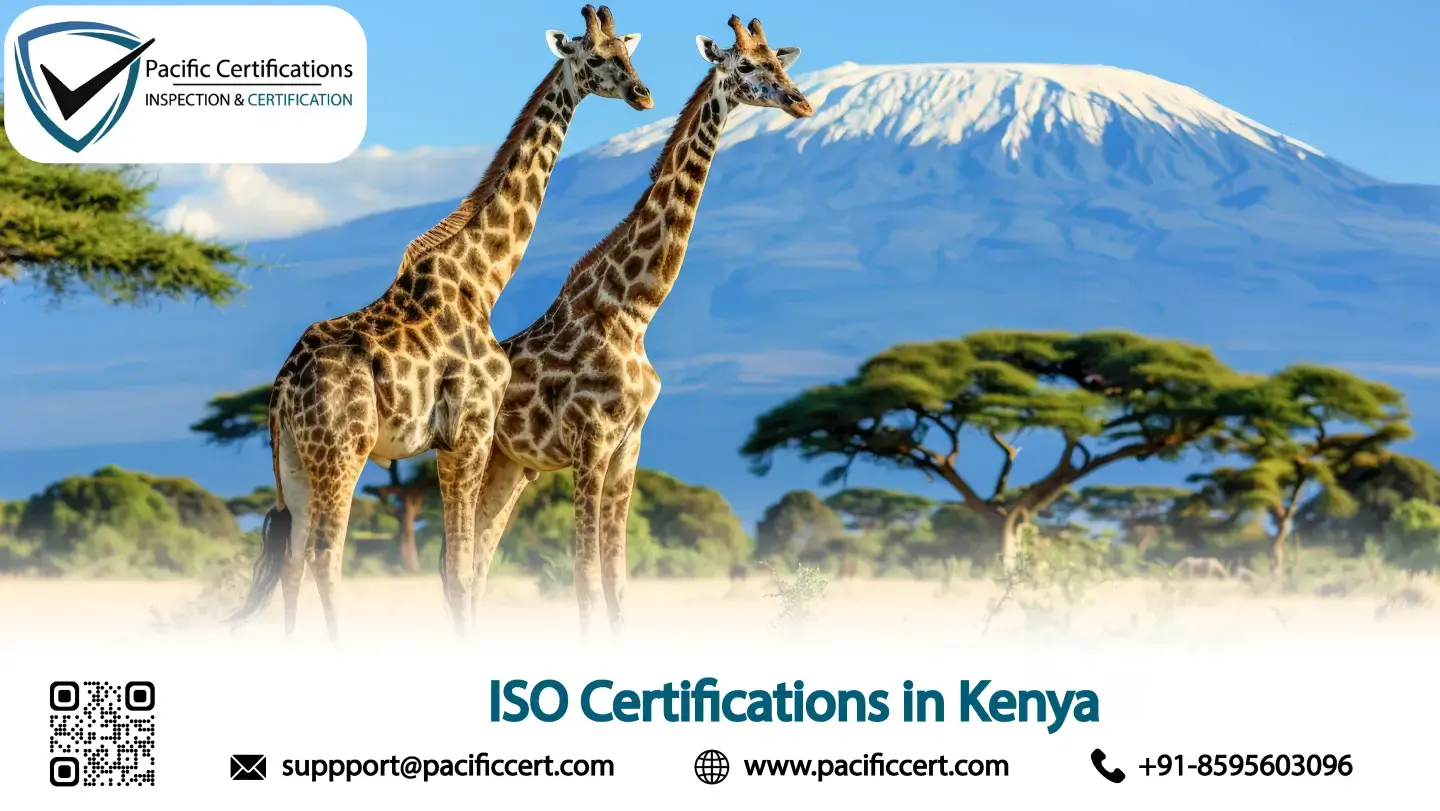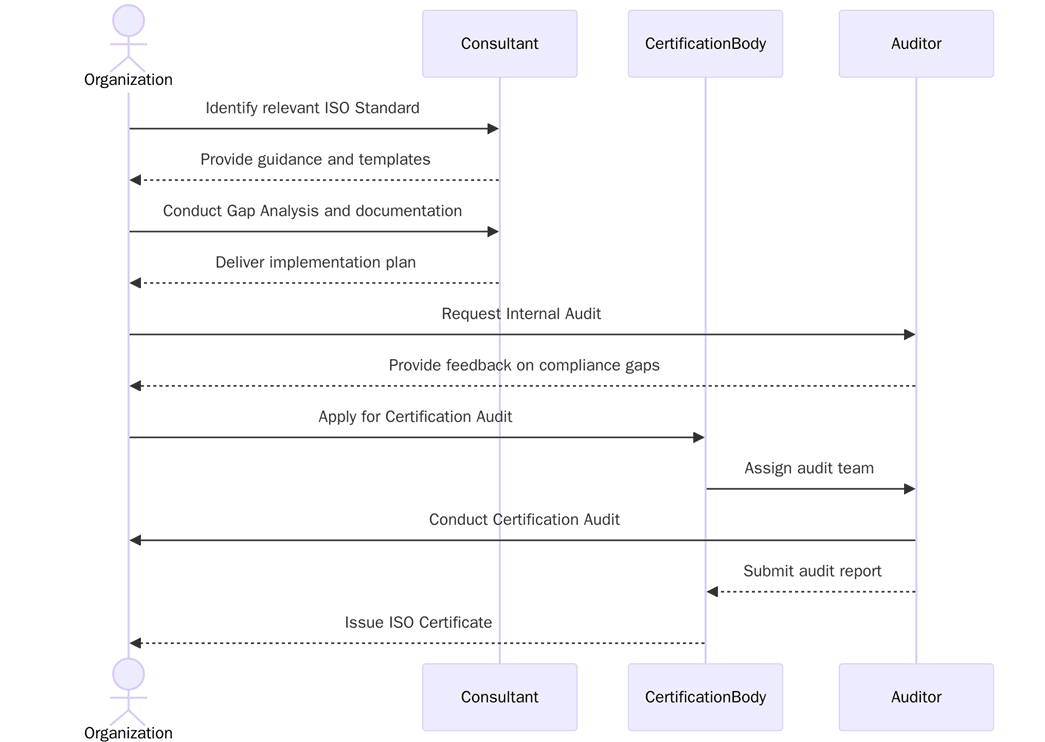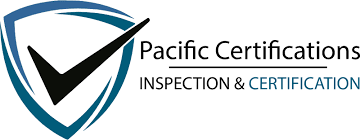ISO Certifications in Kenya, Popular Standards, Requirements and Benefits

Introduction
Kenya’s economy runs on agriculture and food processing, floriculture exports, logistics through Mombasa and the Northern Corridor, construction and engineering, healthcare, fast-scaling fintech and cloud services around Nairobi and growing power and geothermal. By adopting standards such as ISO 9001 (Quality Management), ISO 14001 (Environmental Management) and ISO 45001 (Occupational Health & Safety), companies in Kenya can improve efficiency, reduce waste and earn trust from partners and regulators. For growing sectors like ICT, construction and agriculture, ISO certification has become a practical step toward attracting international clients and competing confidently in global markets. ISO programs help organizations show stable quality, safer worksites, environmental care, secure information and resilient operations that buyers and lenders recognise across EAC, COMESA and global markets.
Contact Pacific Certifications to apply for ISO certification in Kenya, we’ll issue an accreditation-backed proposal with scope, audit days, timelines and a fixed fee.
Economic Context & Industry Overview
Fresh produce and flower exports anchor foreign exchange and retail access, while construction, energy and logistics connect the port of Mombasa to inland markets. ICT and fintech (mobile money, data centres, cloud platforms) continue to scale around Nairobi, pushing higher expectations on data protection, service availability and cybersecurity. Many large buyers and lenders now expect auditable management systems as a baseline for vendor approval and due diligence.
Why ISO certification matters in Kenya?
Export buyers want traceability and hygienic handling through the entire chain. Public projects and large OEMs expect documented safety and environmental controls on busy sites. Platforms and financial services must protect data and uptime. ISO gives a language that procurement teams recognise, supports due diligence and helps reduce incidents and delays while keeping records ready for review. For food, HACCP-based systems build confidence with retailers and border inspectors; for ICT and finance, ISO/IEC 27001 and ISO 22301 frame information security and continuity in ways regulators and enterprise customers accept.
Popular ISO Standards in Kenya
Certification Process in Kenya
Preparation starts with an honest view of how work runs today and how evidence is captured. The aim is to make your system auditable without reinventing daily routines. Below are the steps to consider:
List products services sites headcount and high-risk processes for clear scope
Map processes end to end to show handoffs records and responsibilities
Set policy and measurable objectives linked to customer and legal needs
Assemble evidence packs for production maintenance labs IT and logistics
Train process owners keep competence matrices and attendance records current
Calibrate instruments verify methods and file certificates for quick checks
Run internal audits that sample high-risk tasks and supplier interfaces
Hold management review with KPIs audit results complaints legal updates and actions
Schedule Stage 1 for readiness and Stage 2 for implementation verification align multi-site sampling to risk
Blend on-site checks with remote interviews where suitable to reduce travel time
Keep permits, licenses and regulatory reports organized for quick verification
What are the requirements of ISO Certifications in Kenya?
Make the system match daily work on farms, plants, sites, clinics and server rooms and align with Kenyan norms so evidence stands up in audits, inspections and buyer reviews; below are the key requirements:

Scope that matches products, services and sites (single or multi-site).
Documented system with controlled procedures and records that match practice.
Risk assessment with controls reflecting real tasks and hazards (HACCP, site safety, environmental aspects, data risks).
Competence matrices and training records for owners of critical processes and high-risk tasks.
Internal audits with reports, nonconformities, root-cause actions and verified closures.
Management review with inputs (KPIs, audits, complaints/incidents, legal updates) and tracked decisions.
Standard-specific artefacts: HACCP & CCP logs (ISO 22000), Statement of Applicability & risk files (ISO/IEC 27001), HIRA and PTW (ISO 45001), aspect–impact registers & objectives (ISO 14001), energy review & EnPIs (ISO 50001).
Legal/other requirements register with permits, inspections, calibrations, monitoring data and supplier compliance evidence.
Tip: Align controls with NEMA licensing/monitoring, DOSHS safety requirements, KEPHIS and retailer checks for exports, EPRA for energy/utility oversight and the Data Protection Act (2019) under the ODPC for privacy; keep calibration certificates, cold-chain logs and supplier test reports ready for sampling.
What are the benefits of ISO Certifications in Kenya?
Use certification to secure retailer approval, supplier status with OEMs and bankable trust with lenders; below are the key benefits:

Faster prequalification in vendor portals and public procurement
Reduced incidents, defects and unplanned stoppages across shifts and sites
Clear roles and competence development for high-risk tasks
Traceable data for warranty, claims, ESG and due diligence
Stronger supplier oversight through audits, KPIs and corrective actions
Measured gains in energy use, waste, emissions, uptime and yield
Stronger brand signals in EAC, COMESA, EU and GCC markets
Market Trends
EU buyers will keep tightening phytosanitary and traceability checks, so exporters that can evidence HACCP, temperature integrity and supplier control under ISO 22000 / FSSC 22000 will remain preferred. Sector briefings already show EU capturing ~70% of Kenya’s flower revenues; sustaining growth to 2030 will hinge on verifiable cold-chain and pest-management records, which certification structures well. On the logistics side, performance monitoring along the Northern Corridor continues to guide trade facilitation; port, freight and warehousing operators that align to ISO 9001/14001/45001/28000 will be better positioned for corridor KPI targets through 2027 and beyond.
Kenya’s policy direction points to a larger digital share of GDP by 2030, supported by the National ICT Policy (2020) and the Digital Economy Blueprint—both emphasizing secure platforms, resilient services, and trusted data flows. Expect sustained uptake of ISO/IEC 27001 for information security and ISO 22301 for continuity among fintech, cloud, and data-centre operators as 2027–2030 service-level expectations harden. This is reinforced by Kenya’s Data Protection Act (2019) and official ODPC guidance, which drive repeatable privacy governance and supplier due-diligence, an area where ISO controls map neatly to obligations heading into 2030.
With energy policy set through 2025–2034, utilities and energy-intensive users are planning for continuity and efficiency. Expect wider deployment of ISO 22301 (to mitigate outage impacts) and ISO 50001 (to meet energy-intensity and reporting goals) as firms prepare for 2027 operational milestones and 2030 ESG disclosures. Recent EPRA statistics and policy outlooks underline this trajectory.
Challenges Faced in Kenya
Adoption can slow due to practical hurdles tied to resourcing, capability and ownership of the system; below are the key challenges:
Budgeting for certification fees, audit time and ongoing system maintenance
A lingering view of ISO as “tick-box” compliance rather than an improvement tool
Shortage of seasoned internal auditors and quality managers outside Nairobi/the Corridor
Stalling on document control, internal audits and corrective-action discipline
Heavy reliance on external consultants raising costs and reducing internal ownership
What is the cost of certification in Kenya?
Certification fees are set after scoping and reflect audit-time drivers such as headcount and risk, the number and dispersion of sites (e.g., Nairobi vs. Mombasa vs. up-country operations), chosen standards (single vs. integrated programs like 9001+14001+45001), sector sampling depth (process plants and cold chains vs. offices/warehouses) and travel/logistics. Your proposal itemizes Stage 1, Stage 2 and surveillance audit days, shows any multi-site sampling efficiencies and clarifies on-site versus remote activities so budgets stay transparent and predictable.
For more details, contact [email protected].
What is the timeline for certification in Kenya?
Timelines depend on document and record readiness, speed of closing any Stage-1 gaps, single- vs. multi-site scope and whether you’re certifying one or several standards in an integrated cycle. Coordinating audit windows around harvests, production peaks, or shutdowns and auditor travel on the Northern Corridor-also affects duration. A well-prepared single site can move from application to decision within one audit cycle, while multi-site or integrated programs typically require extra planning and sampling time.
How Pacific Certifications can help?
Pacific Certifications audits and certifies ISO management systems for fresh produce and floriculture, manufacturing and construction, logistics and ports, healthcare, power and geothermal and fintech/cloud across Kenya. We work under recognized accreditation with transparent pricing and an experienced local team that understands site realities and buyer expectations. Our certificates are accepted by procurement portals and international customers and we are recognized by ABIS.
Request your ISO audit plan and fee estimate. We will help you map Stage 1 and Stage 2 timelines and evidence requirements for your organization. Contact us at [email protected] or visit www.pacificcert.com.
Accredited Training Programs
Pacific Certifications provides accredited training programs in Kenya for ISO 9001, ISO 14001, ISO 45001, ISO 22000/FSSC 22000, ISO/IEC 27001, ISO 22301 and ISO/IEC 20000-1.
Lead Auditor Training: for professionals auditing these systems across Kenyan industries.
Lead Implementer Training: for personnel establishing or improving systems in plants, farms, cold chains, hospitals, utilities and ICT platforms.
These programs are conducted online or onsite, depending on client needs under ISO/IEC 17024 for personnel certification.
Contact us
If you need support with ISO Certifications in Kenya, contact us at [email protected]or +91-8595603096.
Author: Ashish
Read More at: Blogs by Pacific Certifications

